Coronavirus: Tesco 'whipping up' storm over rate relief
- Published
- comments
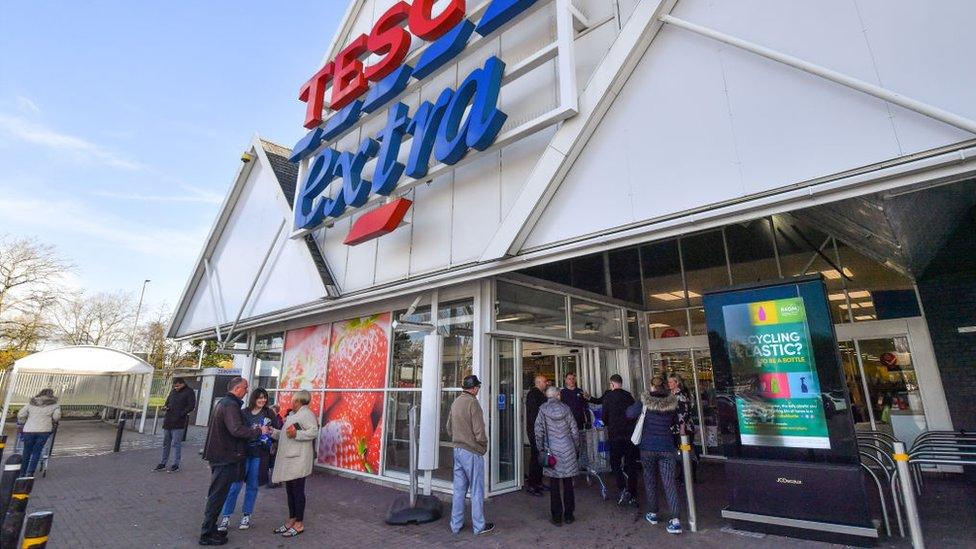
Tesco has been accused of a "disproportionate" response to the policy shift
Tesco has been accused of "whipping up a huge lobbying operation" against a decision not to give its biggest stores in Wales financial help.
The Welsh Government changed its mind on giving business rate relief to all retail, hospitality and leisure firms.
BBC Wales has been told Tesco asked the government for an explanation of its thinking rather than a change in policy.
Tesco said it had recruited 2,750 new staff in Wales during the outbreak.
The relief will not now be given to the "small proportion of properties" with a rateable value of £500,000 and above.
A Welsh Government source said Tesco had "been using all channels to get us to overturn the decision" and that "it's been disproportionate".
A Tesco spokesman said: "As Wales' largest retailer we are doing our utmost to support both our colleagues and customers through this time of significant uncertainty.
"We have now taken on 2,750 new colleagues in Wales to provide additional help, have given our frontline colleagues a 10% pay bonus, and have provided our vulnerable colleagues with paid leave for 12 weeks."
The policy change also affects the premises of around 50 companies, including Asda, Morrisons, the Celtic Manor Hotel, DFS, IKEA, and John Lewis.

The policy change also affects the likes of Ikea in Wales
It also means Bluestone holiday resort in Pembrokeshire and the Principality Stadium in Cardiff will continue to pay business rates.
Bluestone is to be transformed into a recovery centre for people recovering from coronavirus, whilst the national stadium of Wales is to be used as a field hospital for up to 2,000 beds during the outbreak.
Speaking at the Welsh Government's daily press conference, Health Minister Vaughan Gething said a "choice was made about those very large businesses and their ability to survive, and other smaller businesses who may have been much more hard pushed".
He also said ministers would look again at firms that were "turning over their assets" to help the fight against coronavirus to see "how we provide support for them", including Bluestone and the Principality Stadium.
In a letter sent on Monday to the boss of Tesco Dave Lewis, the first minister said the Welsh Government faces "extraordinarily difficult decisions" because it has "a finite budget and limited borrowing capacity both of which are effectively decided by the UK government".
Mark Drakeford explained in his letter that giving business rate relief to all premises in the retail, hospitality and leisure sectors "would have cost the Welsh Government nearly £120 million".

Wales has a "finite budget and limited borrowing capacity", said Mr Drakeford
On Monday, it was announced that the money will instead be used as part of a £500m 'economic resilience fund' to help businesses, charities and social enterprises survive the coronavirus crisis.
In the letter, Mr Drakeford also said it meant the Welsh Government was "able to provide critically important grants" of around £50,000 to 2,400 small and medium sized businesses.
He added: "Given the nature of the Welsh economy, I am convinced that we have made the correct decision.
"In Wales, we will now be able to assist sectors with much less help otherwise available - companies in the manufacturing and other services sectors (for example, financial services, media and broadcasting).
"I know that you will acknowledge that, while Tesco are able to continue to trade, many of the businesses which we will now be able to help have had to suspend economic activity altogether."
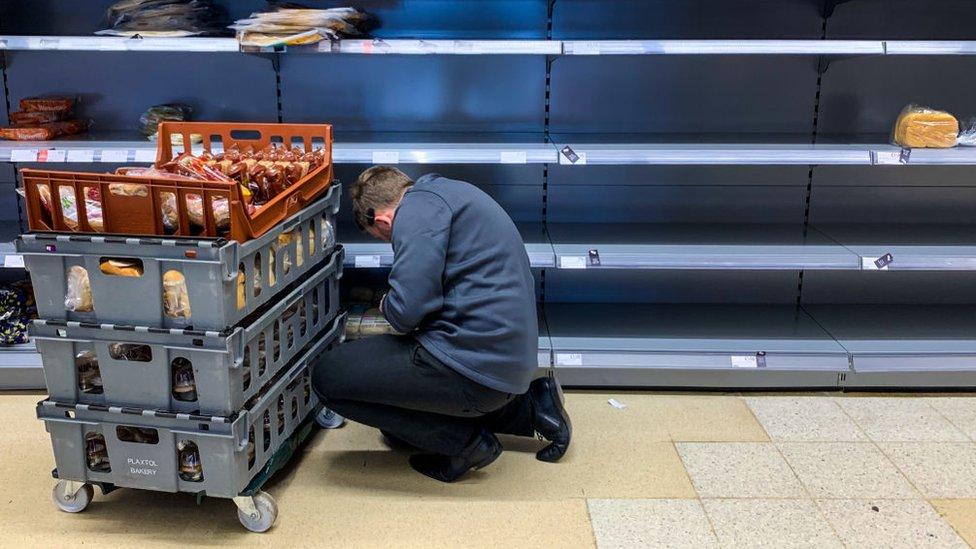
Supermarkets have struggled to keep shelves stocked during the coronavirus pandemic
On 18 March, Economy Minister Ken Skates said the Welsh Government would match plans announced by UK Chancellor Rishi Sunak, including a business rate holiday for all firms in the retail, leisure and hospitality sectors for 12 months.
But six days later, Mr Skates and Finance Minister Rebecca Evans said the Welsh Government had since decided to not extend the 100% relief, external to the small proportion of properties with a rateable value of £500,000 and above.
The head of the business organisation CBI, Carolyn Fairbairn, welcomed news of an "economic resilience fund" but said failure to follow through on commitment to match England's approach on business rates was "significant and damaging" to Welsh retailers.
Allow X content?
This article contains content provided by X. We ask for your permission before anything is loaded, as they may be using cookies and other technologies. You may want to read X’s cookie policy, external and privacy policy, external before accepting. To view this content choose ‘accept and continue’.

Head of the Welsh Retail Consortium, Sara Jones, called the Welsh Government's policy U-turn "short-sighted and damaging".
"We continue to be at a loss as to why ministers think firms operating here in Wales are undeserving of the fiscal support on offer to comparable firms in England and Scotland," she said.
"With retail the lifeblood of many local economies, sustaining thousands of jobs across the nation, this volte-face on rates from the Welsh Government is both short sighted and damaging.
"The retail industry faced huge challenges prior the current pandemic, and those challenges have just become immeasurably more pressing."

A SIMPLE GUIDE: How do I protect myself?
AVOIDING CONTACT: The rules on self-isolation and exercise
LOOK-UP TOOL: Check cases in your area
MAPS AND CHARTS: Visual guide to the outbreak
VIDEO: The 20-second hand wash

- Published30 March 2020
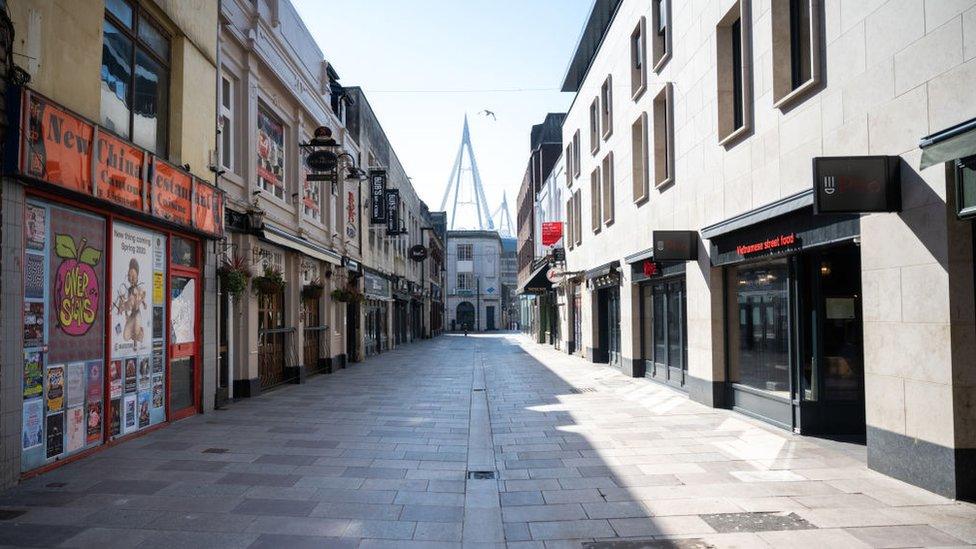
- Published30 March 2020
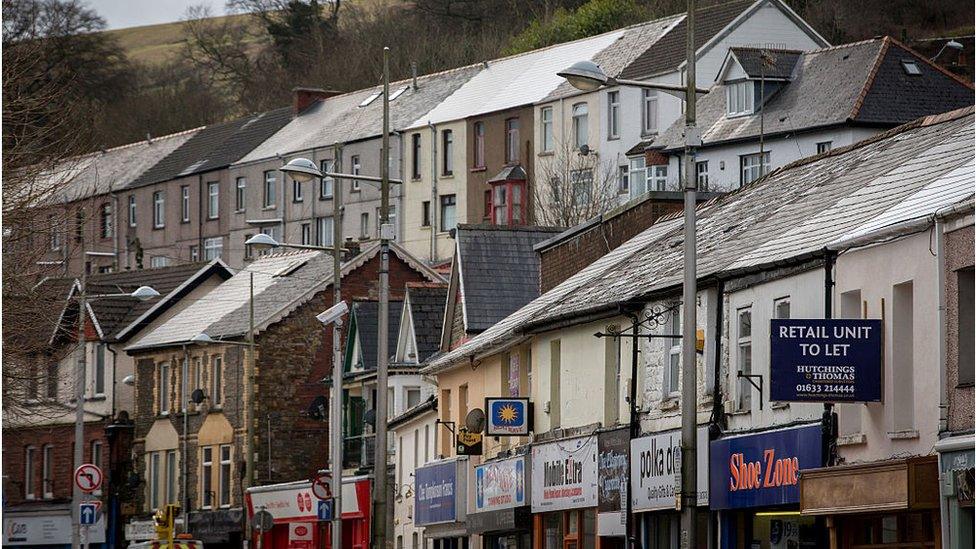
- Published30 March 2020

- Published30 March 2020

- Published26 November 2020
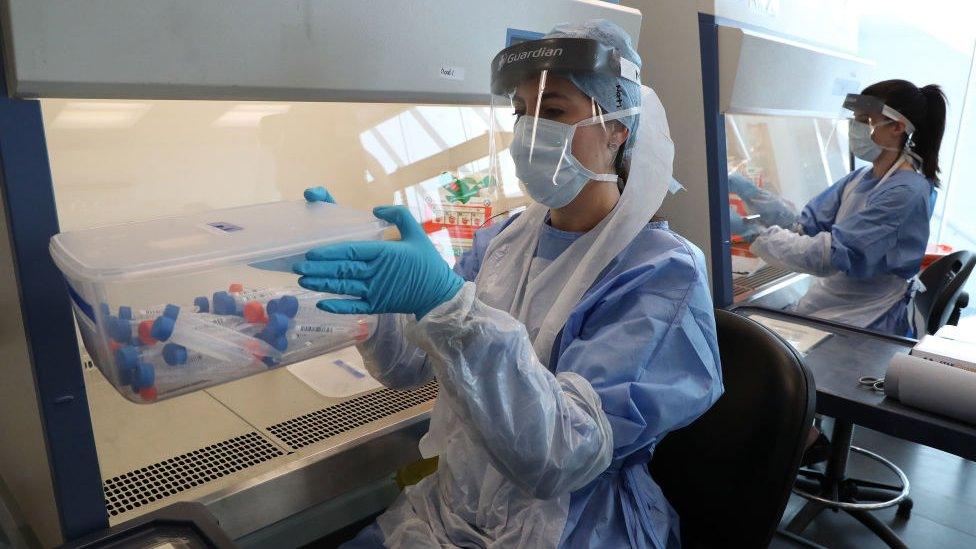
- Published27 March 2020

- Published29 May 2020
